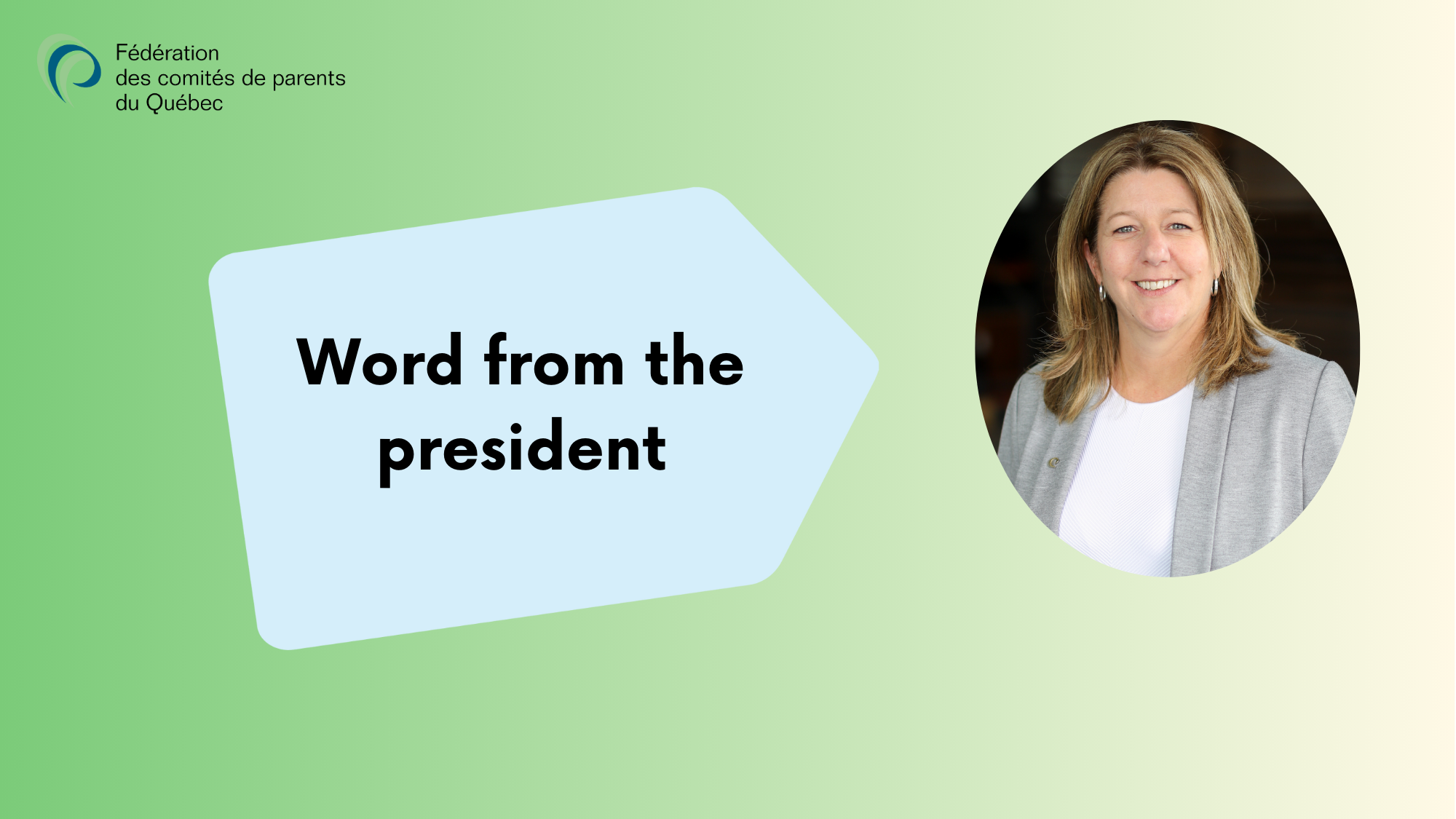Misconduct in our schools – what to do?

Dear parents,
If the first month of the year of well-being was marked by the impact of screens in our lives, the second was flayed by revelations of misconduct towards our youth, notably at Bedford School. Beyond our feelings of outrage and powerlessness, what can we do as parents to prevent such misconduct and to take action if we are confronted with it? I’d like to share with you three courses of action that I believe are accessible to all parents.
Communications with our children
Getting into the habit of talking with our youth about our respective days, validating their emotions, noting what interests them, asking questions… it may seem trivial. But having open discussions when everything’s going well makes things easier when it’s going badly. I invite us to establish these good habits so that our children feel comfortable talking to us if they do something stupid… or if they are victims of violence or bullying.
Communications with the school
Developing and maintaining open, bi-directional communications between school and home is a shared responsibility between school staff and parents. As parents, we have an important role to play by responding positively to invitations to school meetings, participating in the annual parents’ assembly and communicating important information about our children with the staff concerned. Again, if we talk to each other when things are going well, collaborate and respect each other’s roles, it makes it a lot easier to talk to each other if we have a difficult subject to discuss.
Knowing the school complaints procedure
It is the school’s responsibility to inform parents of the school’s complaint procedure. It is also the parent’s responsibility to be aware of it and to know who to contact in the event of a dissatisfaction with a school service or misconduct on the part of an adult. I refer you to three sources to make sure you are familiar with our complaints system:
- The National Student Ombudsman website.
- The page dedicated to this subject on the FCPQ website.
- The Action Parents blog article Les recours dans le monde scolaire, which contains frequently asked questions to the FCPQ and examples.
If, despite your best efforts, you’re having trouble maintaining open communications with the school, or if you don’t understand the complaints procedure, I invite you to speak with a member of your school’s governing board, with your school principal, or to contact the FCPQ’s advisory services. The easiest way to contact us is via chat on the www.fcpq.qc.ca website.
As parents, we have a responsibility to collaborate with the school, while respecting each other’s roles, and to weave a safety net around our children, along with all the adults who work with them.
We also have a responsibility, if we hear about or witness a misconduct, not to ignore these situations and get involved to protect our youth.
Parents also have rights, including the right to expect respect for the Education Act and the Basic School Regulation, and the right to expect quality education for our children!
Opportunities to express our opinions on current topics
On another note, I’d like to share with you two opportunities to give your opinions as parents on two hot topics:
- The Ministry of Education’s online survey for parents on the use of artificial intelligence in education.
- The Select Committee’s online consultation on the impact of screens and social networks on youth health and development – the whole population is invited to give its opinion.
Finally…
This week, we’ll be holding our first General Council following the first Parents’ Committee meetings of the year. I’m looking forward to meeting the new delegates to the FCPQ, and to seeing our returning parent delegates!
Talk to you soon,
Mélanie Laviolette
President
